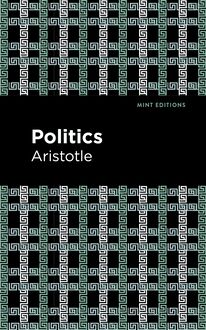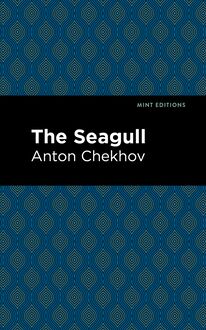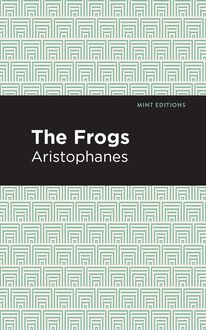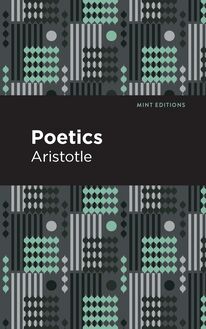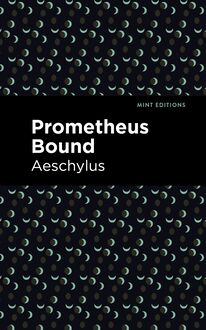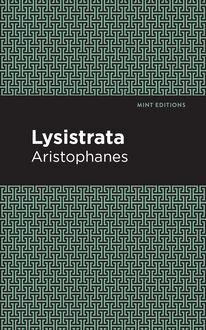-
 Univers
Univers
-
 Ebooks
Ebooks
-
 Livres audio
Livres audio
-
 Presse
Presse
-
 Podcasts
Podcasts
-
 BD
BD
-
 Documents
Documents
-
- Cours
- Révisions
- Ressources pédagogiques
- Sciences de l’éducation
- Manuels scolaires
- Langues
- Travaux de classe
- Annales de BEP
- Etudes supérieures
- Maternelle et primaire
- Fiches de lecture
- Orientation scolaire
- Méthodologie
- Corrigés de devoir
- Annales d’examens et concours
- Annales du bac
- Annales du brevet
- Rapports de stage
La lecture à portée de main
Vous pourrez modifier la taille du texte de cet ouvrage
Découvre YouScribe en t'inscrivant gratuitement
Je m'inscrisDécouvre YouScribe en t'inscrivant gratuitement
Je m'inscrisEn savoir plus
Vous pourrez modifier la taille du texte de cet ouvrage
En savoir plus

Description
The Frogs follows interpersonal conflicts between men and women, Greek gods, and the natural and supernatural. Using extraordinary circumstances, the author provides commentary on multiple public figures spanning religion, politics and literature.
The Frogs is one of Aristophanes’ most notable works. The story centers on Dionysus, the god of fertility and wine, who’s also known as a patron of the arts. In an effort to restore Greek tragedy to its former glory, Dionysus travels to the underworld to bring the late playwright Euripides back to life. While on this mission he encounters other prominent figures such as Aeschylus, the “Father of Tragedy,” and Heracles, the Greek demigod.
Aristophanes’ work is filled with biting humor and colorful commentary that has stood the test of time. Unlike his peers, a portion of his plays (11 out of 40) survived his death and remain fully intact. The Frogs offers a glimpse into the impressive catalog that made Aristophanes one of the greatest playwrights of his era.
With an eye-catching new cover, and professionally typeset manuscript, this edition of The Frogs is both modern and readable.
Sujets
Informations
| Publié par | Mint Editions |
| Date de parution | 01 décembre 2020 |
| Nombre de lectures | 2 |
| EAN13 | 9781513272924 |
| Langue | English |
Informations légales : prix de location à la page 0,0250€. Cette information est donnée uniquement à titre indicatif conformément à la législation en vigueur.
Extrait
The Frogs
Aristophanes
The Frogs was created in 405 BC .
This edition published by Mint Editions 2020.
ISBN 9781513267920 | E-ISBN 9781513272924
Published by Mint Editions®
minteditionbooks.com
Publishing Director: Jennifer Newens
Design & Production: Rachel Lopez Metzger
Typesetting: Westchester Publishing Services
C ONTENTS The Characters in the Play Begin Reading
T HE C HARACTERS IN THE P LAY
T HE G OD D IONYSUS
X ANTHIAS , his slave
A ESCHYLUS
E URIPIDES
H ERACLES
P LUTO
C HARON A EACUS , house porter to Pluto
A C ORPSE
A M AIDSERVANT OF P ERSEPHONE
A L ANDLADY IN H ADES
P LATHANE , her servant
A C HORUS OF F ROGS
A C HORUS OF I NITIATED P ERSONS
Attendants at a Funeral;
Women worshipping Iacchus;
Servants of Pluto, &c.
X ANTHIAS :
Shall I crack any of those old jokes, master,
At which the audience never fail to laugh?
D IONYSUS : Aye, what you will, except I’m getting crushed: Fight shy of that: I’m sick of that already.
X ANTHIAS : Nothing else smart?
D IONYSUS : Aye, save my shoulder’s aching.
X ANTHIAS : Come now, that comical joke?
D IONYSUS : With all my heart. Only be careful not to shift your pole, And—
X ANTHIAS : What?
D IONYSUS : And vow that you’ve a bellyache.
X ANTHIAS : May I not say I’m overburdened so
That if none ease me, I must ease myself?
D IONYSUS : For mercy’s sake, not till I’m going to vomit.
X ANTHIAS :
What! must I bear these burdens, and not make
One of the jokes Ameipsias and Lycis
And Phrynichus, in every play they write,
Put in the mouths of all their burden-bearers?
D IONYSUS :
Don’t make them; no! I tell you when I see
Their plays, and hear those jokes, I come away
More than a twelvemonth older than I went.
X ANTHIAS :
O thrice unlucky neck of mine, which now
Is getting crushed , yet must not crack its joke!
D IONYSUS :
Now is not this fine pampered insolence
When I myself, Dionysus, son of—Pipkin,
Toil on afoot, and let this fellow ride,
Taking no trouble, and no burden bearing?
X ANTHIAS : What, don’t I bear?
D IONYSUS : How can you when you’re riding?
X ANTHIAS : Why, I bear these.
D IONYSUS : How?
X ANTHIAS : Most unwillingly.
D IONYSUS : Does not the donkey bear the load you’re bearing?
X ANTHIAS : Not what I bear myself: by Zeus, not he.
D IONYSUS : How can you bear, when you are borne yourself?
X ANTHIAS : Don’t know: but anyhow my shoulder’s aching .
D IONYSUS :
Then since you say the donkey helps you not,
You lift him up and carry him in turn.
X ANTHIAS :
O hang it all! why didn’t I fight at sea?
You should have smarted bitterly for this.
D IONYSUS :
Get down, you rascal; I’ve been trudging on
Till now I’ve reached the portal, where I’m going
First to turn in.
Boy! Boy! I say there, Boy!
H ERACLES : Who banged the door? How like a prancing Centaur
He drove against it! Mercy o’ me, what’s this?
D IONYSUS : Boy.
X ANTHIAS : Yes.
D IONYSUS : Did you observe?
X ANTHIAS : What?
D IONYSUS : How alarmed He is.
X ANTHIAS : Aye truly, lest you’ve lost your wits.
H ERACLES : O by Demeter, I can’t choose but laugh.
Biting my lips won’t stop me. Ha! ha! ha!
D IONYSUS : Pray you, come hither, I have need of you.
H ERACLES : I vow I can’t help laughing, I can’t help it.
A lion’s hide upon a yellow silk, a club and buskin!
What’s it all about? Where were you going?
D IONYSUS : I was serving lately aboard the—Cleisthenes.
H ERACLES : And fought?
D IONYSUS : And sank more than a dozen of the enemy’s ships.
H ERACLES : You two?
D IONYSUS : We two.
H ERACLES : And then I awoke, and lo!
D IONYSUS : There as, on deck, I’m reading to myself
The Andromeda, a sudden pang of longing
Shoots through my heart, you can’t conceive how keenly.
H ERACLES : How big a pang.
D IONYSUS : A small one, Molon’s size.
H ERACLES : Caused by a woman?
D IONYSUS : No.
H ERACLES : A boy?
D IONYSUS : No, no.
H ERACLES : A man?
D IONYSUS : Ah! ah!
H ERACLES : Was it for Cleisthenes?
D IONYSUS : Don’t mock me, brother; on my life I am
In a bad way: such fierce desire consumes me.
H ERACLES : Aye, little brother? how?
D IONYSUS : I can’t describe it. But yet I’ll tell you in a riddling way.
Have you e’er felt a sudden lust for soup?
H ERACLES : Soup! Zeus-a-mercy, yes, ten thousand times.
D IONYSUS : Is the thing clear, or must I speak again?
H ERACLES : Not of the soup: I’m clear about the soup.
D IONYSUS : Well, just that sort of pang devours my heart
For lost Euripides.
H ERACLES : A dead man too.
D IONYSUS : And no one shall persuade me not to go after the man.
H ERACLES : Do you mean below, to Hades?
D IONYSUS : And lower still, if there’s a lower still.
H ERACLES : What on earth for?
D IONYSUS : I want a genuine poet, “For some are not, and those that are, are bad.”
H ERACLES : What! does not Iophon live?
D IONYSUS : Well, he’s the sole Good thing remaining, if even he is good.
For even of that I’m not exactly certain.
H ERACLES : If go you must, there’s Sophocles—he comes Before Euripides—why not take him ?
D IONYSUS : Not till I’ve tried if Iophon’s coin rings true
When he’s alone, apart from Sophocles.
Besides, Euripides the crafty rogue,
Will find a thousand shifts to get away,
But he was easy here, is easy there.
H ERACLES : But Agathon, where is he?
D IONYSUS : He has gone and left us, A genial poet, by his friends much missed.
H ERACLES : Gone where?
D IONYSUS : To join the blessed in their banquets.
H ERACLES : But what of Xenocles?
D IONYSUS : O he be hanged!
H ERACLES : Pythangelus?
X ANTHIAS : But never a word of me, Not though my shoulder’s chafed so terribly.
H ERACLES : But have you not a shoal of little songsters,
Tragedians by the myriad, who can chatter
A furlong faster than Euripides?
D IONYSUS : Those be mere vintage-leavings, jabberers, choirs
Of swallow-broods, degraders of their art,
Who get one chorus, and are seen no more,
The Muses’ love once gained. But O my friend,
Search where you will, you’ll never find a true
Creative genius, uttering startling things.
H ERACLES : Creative? how do you mean?
D IONYSUS : I mean a man Who’ll dare some novel venturesome conceit,
Air, Zeus’s chamber , or Time’s foot , or this,
’Twas not my mind that swore: my tongue committed
A little perjury on its own account.
H ERACLES : You like that style?
D IONYSUS : Like it? I dote upon it.
H ERACLES : I vow it’s ribald nonsense, and you know it.
D IONYSUS : “Rule not my mind”: you’ve got a house to mind.
H ERACLES : Really and truly though ’tis paltry stuff.
D IONYSUS : Teach me to dine!
X ANTHIAS : But never a word of me.
D IONYSUS : But tell me truly—’twas for this I came
Dressed up to mimic you—what friends received
And entertained you when you went below
To bring back Cerberus, in case I need them.
And tell me too the havens, fountains, shops,
Roads, resting-places, stews, refreshment rooms,
Towns, lodgings, hostesses, with whom were found
The fewest bugs.
X ANTHIAS : But never a word of me.
H ERACLES : You are really game to go?
D IONYSUS : O drop that, can’t you? And tell me this: of all the roads you know
Which is the quickest way to get to Hades? I want one not too warm, nor yet too cold.
H ERACLES : Which shall I tell you first? which shall it be?
There’s one by rope and bench: you launch away
And—hang yourself.
D IONYSUS : No thank you: that’s too stifling.
H ERACLES : Then there’s a track, a short and beaten cut.
By pestle and mortar.
D IONYSUS : Hemlock, do you mean?
H ERACLES : Just so.
D IONYSUS : No, that’s too deathly cold a way;
You have hardly started ere your shins get numbed.
H ERACLES : Well, would you like a steep and swift descent?
D IONYSUS : Aye, that’s the style: my walking powers are small.
H ERACLES : Go down to the Cerameicus.
D IONYSUS : And do what?
H ERACLES : Climb to the tower’s top pinnacle—
D IONYSUS : And then?
H ERACLES : Observe the torch-race started, and when all
The multitude is shouting Let them go ,
Let yourself go.
D IONYSUS : Go whither?
H ERACLES : To the ground.
D IONYSUS : O that would break my brain’s two envelopes. I’ll not try that
H ERACLES : Which will you try?
D IONYSUS : The way you went yourself.
H ERACLES : A parlous voyage that,
For first you’ll come to an enormous lake Of fathomless depth.
D IONYSUS : And how am I to cross?
H ERACLES : An ancient mariner will row you over
In a wee boat, so big.
The fare’s two obols.
D IONYSUS : Fie! The power two obols have, the whole world through!
How came they thither?
H ERACLES : Theseus took them down.
And next you’ll see great snakes and savage monsters
In tens of thousands.
D IONYSUS : You needn’t try to scare me, I’m going to go.
H ERACLES : Then weltering seas of filth
And ever-rippling dung: and plunged therein,
Whoso has wronged the stranger here on earth,
Or robbed his boylove of the promised pay,
Or swinged his mother, or profanely smitten
His father’s cheek, or sworn an oath forsworn,
Or copied out a speech of Morsimus.
D IONYSUS : There too, perdie, should he be plunged, whoe’er
Has danced the sword-dance of Cinesias.
H ERACLES : And next the breath of flutes will float around you,
And glorious sunshine, such as ours, you’ll see,
And myrtle groves, and happy bands who clap
Their hands in triumph, men and women too.
-
 Univers
Univers
-
 Ebooks
Ebooks
-
 Livres audio
Livres audio
-
 Presse
Presse
-
 Podcasts
Podcasts
-
 BD
BD
-
 Documents
Documents
-
Jeunesse
-
Littérature
-
Ressources professionnelles
-
Santé et bien-être
-
Savoirs
-
Education
-
Loisirs et hobbies
-
Art, musique et cinéma
-
Actualité et débat de société
-
Jeunesse
-
Littérature
-
Ressources professionnelles
-
Santé et bien-être
-
Savoirs
-
Education
-
Loisirs et hobbies
-
Art, musique et cinéma
-
Actualité et débat de société
-
Actualités
-
Lifestyle
-
Presse jeunesse
-
Presse professionnelle
-
Pratique
-
Presse sportive
-
Presse internationale
-
Culture & Médias
-
Action et Aventures
-
Science-fiction et Fantasy
-
Société
-
Jeunesse
-
Littérature
-
Ressources professionnelles
-
Santé et bien-être
-
Savoirs
-
Education
-
Loisirs et hobbies
-
Art, musique et cinéma
-
Actualité et débat de société
- Cours
- Révisions
- Ressources pédagogiques
- Sciences de l’éducation
- Manuels scolaires
- Langues
- Travaux de classe
- Annales de BEP
- Etudes supérieures
- Maternelle et primaire
- Fiches de lecture
- Orientation scolaire
- Méthodologie
- Corrigés de devoir
- Annales d’examens et concours
- Annales du bac
- Annales du brevet
- Rapports de stage
